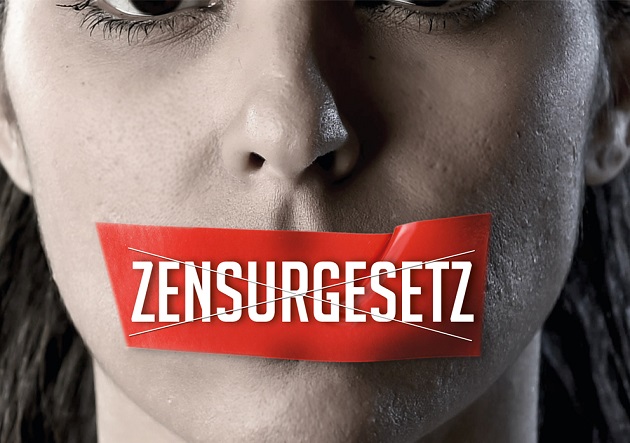Politicians and organisations say freedom of speech and religious freedom could be restricted if “sexual orientation” is given a special protection in the Penal Code.
 Poster of the Swiss campaign for a referendum on the changes in the Penal Code.
Poster of the Swiss campaign for a referendum on the changes in the Penal Code.
In Switzerland, a country known for holding several referendums per year, evangelical Christians are asking for a vote on changes in the law that could criminalise views on homosexuality.
The Swiss Parliament approved on December 2018 the inclusion of “sexual orientation” in Article 216bis of the Penal Code, a norm that so far only punished hate or discrimination because of race, ethnic group or religion.
The political decision led to a broader debate about the limits of freedom of speech and religious freedom.
Now a number of political representatives (including evangelical party EDU) and organisations have launched a campaign in which they argue that “the protection of minorities does not need censorship”.
The platform “No to the censorship law” has collected 50,000 signatures asking for a referendum in which the Swiss citizens would be able to express their opinion on the changes in the law. They hope to collect the 60,000 needed before the end of the March.
PENAL CODE ALREADY PUNISHES HATE
“The Penal Code already includes solid legal basis to respond to defamation, insult, threat and slander (Article 173)”. Therefore, additional laws to protect from people from discrimination are “unnecessary”, the group says.
Taking certain issues out of the public conversation damages the democratic debate of ideas and “leads people into a role of victimisation” which can lead to “radicalisation” and even “hate and violence”. Punishing the expression of ideas is often “counter-productive”.
“Those who oppose the changes in the law are also worried about the open interpretation of what discrimination or hate based on sexual orientation would look like. “Will this law not attack people who, based on their own Christian ethics, oppose gender ideology or the demands of LGBT groups? Should all religious groups who do not believe that homosexuality is ‘the most normal thing’ be banned?”
An undesired outcome of the legal changes could be a wave of police reports against people who express their views on sexuality based on their Christian understanding, the group says.
“The core of freedom of expression includes the right to say things that other do not agree with. It explicitly gives the right to represent views that are not mainstream”, a 6-page document explaining the position of the campaign concludes (download here, German).
SWISS EVANGELICAL SUPPORTS REFERENDUM
The Swiss Evangelical Alliance (SEA-RES) has supported the call for a referendum on this issue, saying the changes in the law would be “a step back in the Swiss culture of tolerance and open discussion”.
The SEA-RES is not officially engaged in the campaign but “encourages people to sign for the referendum” so that “the Swiss people are able to decide about these proposed changes”.
The evangelical body asked, “Will pastors in the future still be able to give a critical approach to homosexuality or bisexuality based on their interpretation of the Bible?“
Another issue is the clear difficulty of defining hate crimes if these increasingly depend on the feelings or perceptions of the “offended” person, instead of an objective evidence.
The evangelical body made clear that it stands against any attitude that does not respect the dignity of homosexual people, and that it condemns any type of violence, hatred or discrimination. But this position does not mean it supports changes in the law that could be used against Christians and other social groups who freely express their views on sexuality.

Las opiniones vertidas por nuestros colaboradores se realizan a nivel personal, pudiendo coincidir o no con la postura de la dirección de Protestante Digital.
Si quieres comentar o